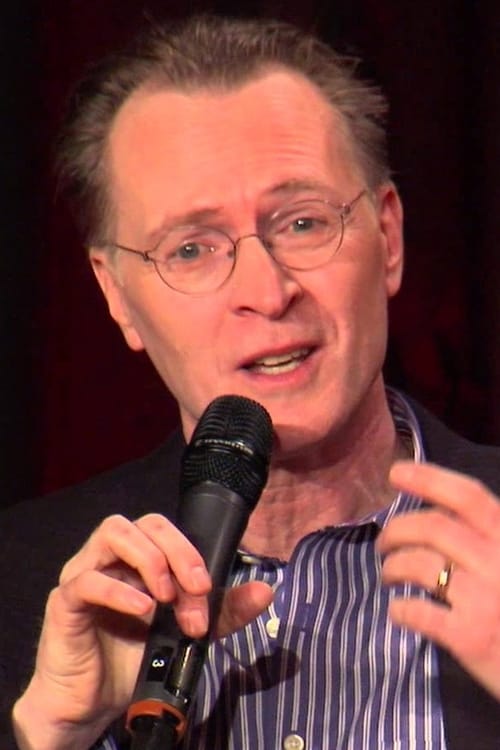Stephen Ives
Historia
Stephen Ives has directed some of the most-watched films in the history of public television. His work has also appeared on HBO, in major film festivals across the country, and on the front page of the New York Times digital edition.
His landmark series The West was seen by more than 38 million people nationwide during its PBS premiere. Caryn James of the New York Times wrote that The West was “fiercely and brilliantly rooted in fact. . . ,” and The New York Daily News called the programs a “breathtakingly beautiful series of films. . . that make riveting TV.”

Director
For generations, Monopoly has been America’s favorite board game, a love letter to unbridled capitalism and — for better or worse — the impulses that make our free-market society tick. But behind the myth of the game’s creation is an untold tale of theft, obsession and corporate double-dealing. Contrary to the folksy legend spread by Parker Brothers, Monopoly’s secret history is a surprising saga that features a radical feminist, a community of Quakers in Atlantic City, America’s greatest game company, and an unemployed Depression-era engineer. And the real story behind the creation of the game might never have come to light if it weren’t for the determination of an economics professor and impassioned anti-monopolist. Part detective story, part sharp social commentary and part pop-culture celebration, Ruthless: Monopoly’s Secret History presents the fascinating true story behind America’s favorite game.

Writer
For generations, Monopoly has been America’s favorite board game, a love letter to unbridled capitalism and — for better or worse — the impulses that make our free-market society tick. But behind the myth of the game’s creation is an untold tale of theft, obsession and corporate double-dealing. Contrary to the folksy legend spread by Parker Brothers, Monopoly’s secret history is a surprising saga that features a radical feminist, a community of Quakers in Atlantic City, America’s greatest game company, and an unemployed Depression-era engineer. And the real story behind the creation of the game might never have come to light if it weren’t for the determination of an economics professor and impassioned anti-monopolist. Part detective story, part sharp social commentary and part pop-culture celebration, Ruthless: Monopoly’s Secret History presents the fascinating true story behind America’s favorite game.

Producer
For generations, Monopoly has been America’s favorite board game, a love letter to unbridled capitalism and — for better or worse — the impulses that make our free-market society tick. But behind the myth of the game’s creation is an untold tale of theft, obsession and corporate double-dealing. Contrary to the folksy legend spread by Parker Brothers, Monopoly’s secret history is a surprising saga that features a radical feminist, a community of Quakers in Atlantic City, America’s greatest game company, and an unemployed Depression-era engineer. And the real story behind the creation of the game might never have come to light if it weren’t for the determination of an economics professor and impassioned anti-monopolist. Part detective story, part sharp social commentary and part pop-culture celebration, Ruthless: Monopoly’s Secret History presents the fascinating true story behind America’s favorite game.

Writer
Explore the life of William Randolph Hearst, the pioneering media mogul and inspiration for Orson Welles’ "Citizen Kane." Wielding unprecedented power, Hearst forever transformed the media’s role in American life and politics.

Director
Explore the life of William Randolph Hearst, the pioneering media mogul and inspiration for Orson Welles’ "Citizen Kane." Wielding unprecedented power, Hearst forever transformed the media’s role in American life and politics.

Executive Producer
Alvin Ailey was a visionary artist who found salvation through dance. Told in his own words and through the creation of a dance inspired by his life, this immersive portrait follows a man who, when confronted by a world that refused to embrace him, determined to build one that would.

Writer
Garden designer Lynden B. Miller explores the life and career of Beatrix Jones Farrand (1872-1959), America's first female landscape architect.

Director
Garden designer Lynden B. Miller explores the life and career of Beatrix Jones Farrand (1872-1959), America's first female landscape architect.

Script
During the darkest days of the Depression when construction was started on Grand Coulee Dam, everything about it was described in superlatives. It would be the "Biggest Thing on Earth," the salvation of the common man, a dam and irrigation project that would make the desert bloom, a source of cheap power that would boost an entire region of the country. Of the many public works projects of the New Deal, Grand Coulee Dam loomed largest in America's imagination, promising to fulfill President Franklin Roosevelt's vision for a "planned promised land" where hard-working farm families would finally be free from the drought and dislocation caused by the elements.

Director
During the darkest days of the Depression when construction was started on Grand Coulee Dam, everything about it was described in superlatives. It would be the "Biggest Thing on Earth," the salvation of the common man, a dam and irrigation project that would make the desert bloom, a source of cheap power that would boost an entire region of the country. Of the many public works projects of the New Deal, Grand Coulee Dam loomed largest in America's imagination, promising to fulfill President Franklin Roosevelt's vision for a "planned promised land" where hard-working farm families would finally be free from the drought and dislocation caused by the elements.
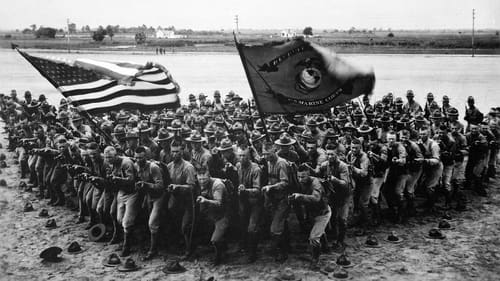
Writer
Drawing on unpublished diaries, memoirs and letters, The Great War tells the rich and complex story of World War I through the voices of nurses, journalists, aviators and the American troops who came to be known as “doughboys".

Director
Drawing on unpublished diaries, memoirs and letters, The Great War tells the rich and complex story of World War I through the voices of nurses, journalists, aviators and the American troops who came to be known as “doughboys".

Producer
In the 1950s and early '60s, a small band of high-altitude pioneers exposed themselves to the extreme forces of the space age long before NASA's acclaimed Mercury 7 would make headlines. Though largely forgotten today, balloonists were the first to venture into the frozen near-vacuum on the edge of our world, exploring the very limits of human physiology and human ingenuity in this lethal realm.

Writer
The dramatic story of an unimaginable wildfire that swept across the Northern Rockies in the summer of 1910.

Director
The dramatic story of an unimaginable wildfire that swept across the Northern Rockies in the summer of 1910.

Writer
1964 was the year the Beatles came to America, Cassius Clay became Muhammad Ali, and three civil rights workers were murdered in Mississippi. It was the year when Berkeley students rose up in protest, African Americans fought back against injustice in Harlem, and Barry Goldwater’s conservative revolution took over the Republican Party. In myriad ways, 1964 was the year when Americans faced choices: between the liberalism of Lyndon Johnson or Barry Goldwater’s grassroots conservatism, between support for the civil rights movement or opposition to it, between an embrace of the emerging counterculture or a defense of traditional values.

Director
1964 was the year the Beatles came to America, Cassius Clay became Muhammad Ali, and three civil rights workers were murdered in Mississippi. It was the year when Berkeley students rose up in protest, African Americans fought back against injustice in Harlem, and Barry Goldwater’s conservative revolution took over the Republican Party. In myriad ways, 1964 was the year when Americans faced choices: between the liberalism of Lyndon Johnson or Barry Goldwater’s grassroots conservatism, between support for the civil rights movement or opposition to it, between an embrace of the emerging counterculture or a defense of traditional values.

Director
On August 15th, 1914, the Panama Canal opened, connecting the world's two largest oceans and signaling America's emergence as a global superpower.
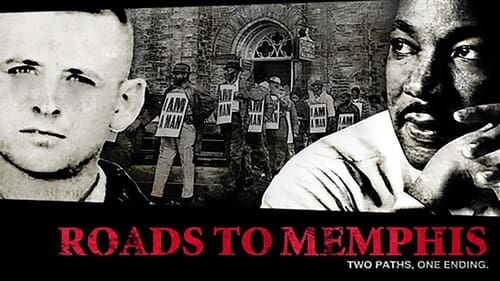
Director
The wildly disparate yet fatefully entwined stories of assassin James Earl Ray and his target, Dr. Martin Luther King Jr.

Director
In the wake of hurricane Katrina, as Americans begin a dialogue about the future of one of the nation's most distinctive cities, AMERICAN EXPERIENCE presents a provocative history of the city that lies at the mouth of the mighty Mississippi. Walled in on almost all sides by water, pressed together by the demands of geography, New Orleans has always been a laboratory where the social forces play out in dramatic and, at times, disastrous fashion.
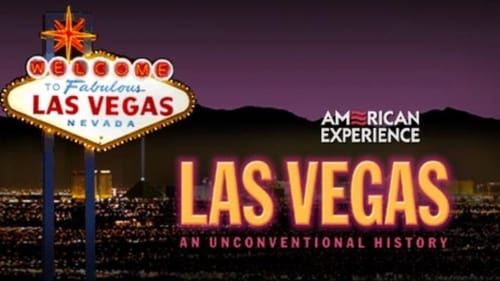
Director
Traces the often surprising, endlessly entertaining history of the country's most outrageous playground. Interviews with Las Vegas insiders as well as everyday citizens in search of the American Dream chronicle how Las Vegas transformed itself from remote frontier way station into the Depression-era "Gateway to the Hoover Dam," then into the mid-century gangster metropolis known as "Sin City," and finally into a family vacation destination and the fastest-growing city in the United States.
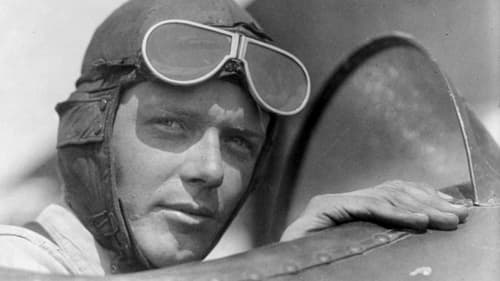
Producer
Charles Lindbergh lived a life of absolutes, never doubting his own abilities or the altitude of his own moral high ground. His extraordinary character brought him unparalleled accomplishment but also public humiliation and lonely isolation, as his faith in genetic determinism could barely conceal his narrow, naive, and racist social and political views.

Director
Charles Lindbergh lived a life of absolutes, never doubting his own abilities or the altitude of his own moral high ground. His extraordinary character brought him unparalleled accomplishment but also public humiliation and lonely isolation, as his faith in genetic determinism could barely conceal his narrow, naive, and racist social and political views.

Director
SEALAB tells the little-known story of the daring program that tested the limits of human endurance and revolutionized undersea exploration.
